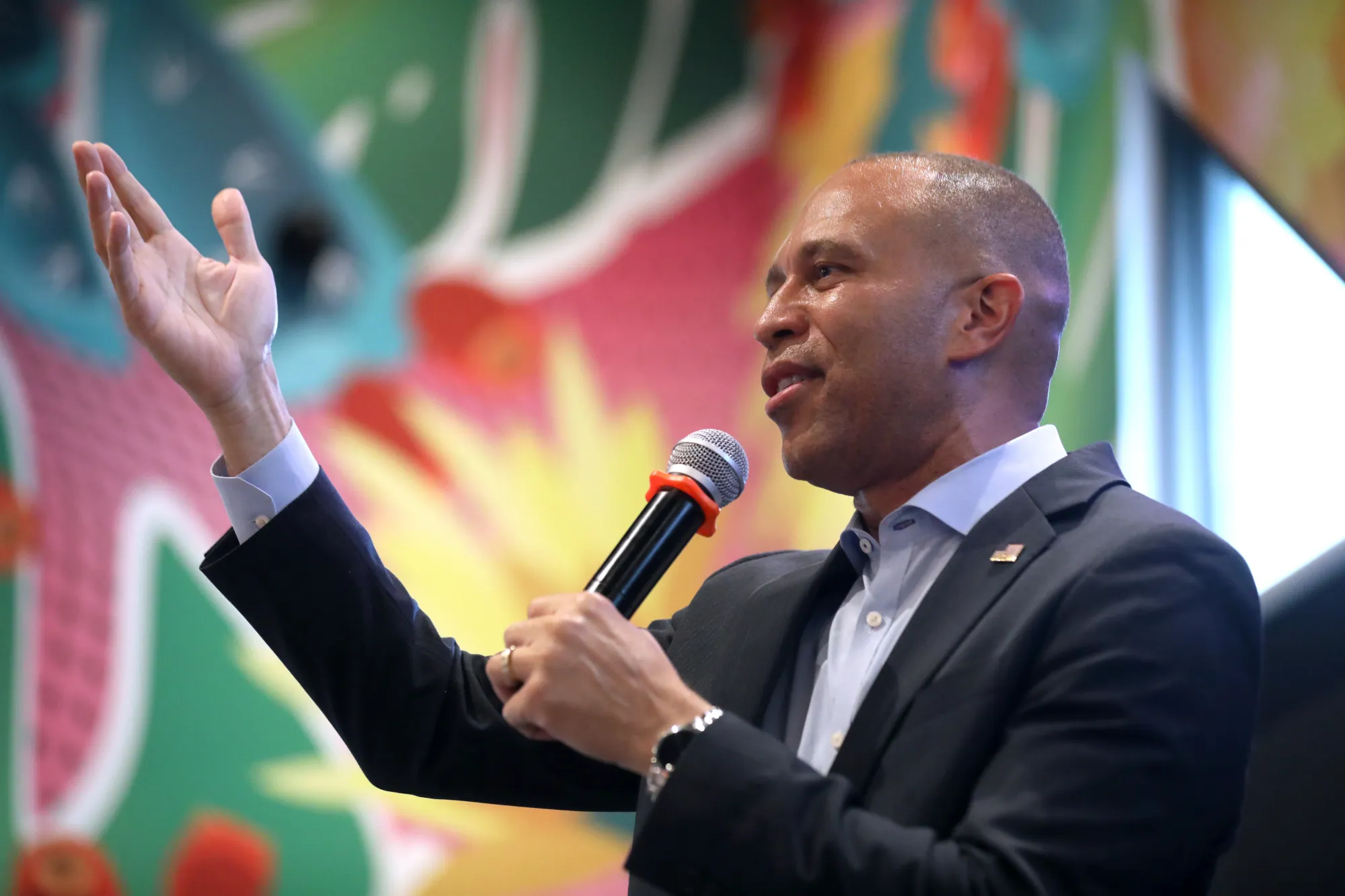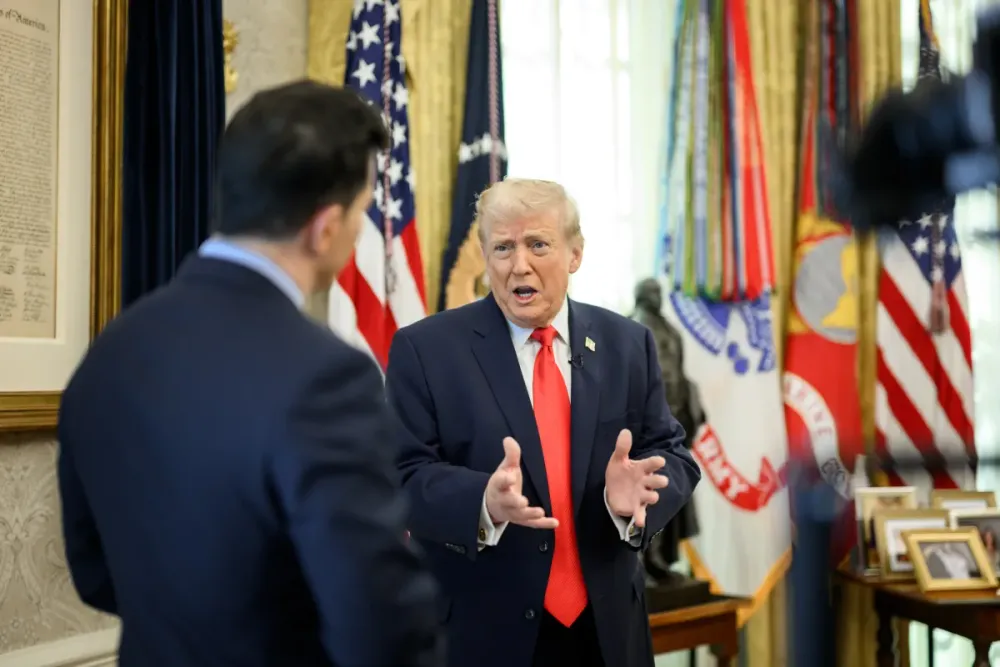They Said “Free Healthcare for Illegals.” How Democrats Are Busting That Lie — The Facts, The Politics, and the Stakes

By Nick Ravenshade for NENC Media Group
October 4, 2025
As Washington careens through another partisan fight over funding, a familiar — and politically potent — claim has resurfaced: Republican leaders and allied commentators have charged that Democrats are trying to give “free health care” to undocumented immigrants. Democrats say that claim is false, and in recent weeks they’ve mounted a multipronged campaign to correct the record: issuing fact checks, staging press events, leaning on health-policy experts and community advocates, and reframing the debate around which immigrants are actually affected by current and proposed law changes. The effort is as much about politics and messaging as it is about public policy.
What the law actually says — and the small exceptions critics seize on
The legal baseline is straightforward and often misunderstood in political rhetoric: undocumented immigrants are not eligible for federally funded coverage through Medicaid or Affordable Care Act marketplace subsidies. Federal law — and implementing agency rules — restrict traditional Medicaid and ACA premium tax credits to citizens and certain categories of “lawfully present” immigrants. Emergency Medicaid payments can and do cover emergency treatment regardless of immigration status in many states, but emergency-only spending for people without lawful status represents a fraction of total Medicaid outlays.
Where the politics get messy is the difference between “undocumented” and “lawfully present.” In 2025 Congress and the executive branch have debated provisions that would restore or preserve coverage for lawfully present immigrants — refugees, asylees, certain visa holders, people with Temporary Protected Status (TPS) and others — who have in recent months been at risk of losing or being delayed from accessing Medicaid or marketplace subsidies because of changes enacted earlier this year. Democrats argue those moves protect people who are legally eligible for federal benefits; Republicans cast the effort as a broader expansion that, in GOP framing, will let unauthorized migrants access federal health care. Those two descriptions are not the same.
That technical distinction is why fact-checkers and health-policy groups have been central to the Democrats’ response: authoritative explainers from KFF, FactCheck.org and federal websites have been repeatedly cited by Democratic lawmakers to rebut GOP talking points. Those fact checks show the broad contours — undocumented people are excluded from federal programs, the coverage in question targets lawfully present groups, and emergency-only care is a small share of Medicaid spending.
How Democrats are pushing back — tactics and messaging
Democratic leaders and allied advocates have deployed a classic playbook: rapid rebuttal, expert amplification, local storytelling and message discipline.
Rapid rebuttal. Within hours of high-profile Republican claims — including social-media posts and press appearances — Democratic Senate and House offices and the White House started posting fact-check threads, press releases and short explainer videos emphasizing the distinction between “undocumented” and “lawfully present.” They have leaned on nonpartisan fact-checking outlets and health-policy shops to add credibility to the rebuttals rather than relying on partisan spokespeople alone.
Expert amplification. Democrats have invited health-policy experts from institutions such as the Kaiser Family Foundation and Georgetown’s Center for Children and Families to brief reporters and testify at televised panels — a strategy aimed at moving the conversation off heated rhetoric and onto empirical claims about eligibility, costs and fiscal impact. KFF’s short explainers and tables on eligibility have become particularly useful: they allow Democratic offices to point to neutral data showing that federal programs do not cover undocumented immigrants except in emergency scenarios.
Local storytelling. On the ground, Democratic lawmakers and health advocates are elevating stories from hospitals, community clinics and affected families to illustrate the human stakes of funding fights. Those narratives serve two purposes: they highlight how proposed cuts or changes would affect seniors, children and lawfully present immigrants while countering the abstraction of “illegals getting free care.” Community groups and unions have organized rallies and press events outside Congress to press for protections for Medicaid and Affordable Care Act subsidies — messages aimed at translating wonky policy points into everyday impacts.
Message discipline and repetition. Perhaps most important politically, Democratic strategists have narrowed their language: when responding to myths, they lead with the simple, repeatable fact that “undocumented immigrants are not eligible for federally funded Medicaid or marketplace subsidies” and then add context. That short, repeated claim is designed to be harder to muddle in quick news cycles and social media. Fact-check citations are included in many of these repeatable talking points to give them immediate sourcing.
The political calculus — why both sides keep playing the same tune
Why do Republicans press the “free health care” line when independent fact-checkers say it’s misleading? Because it works as a political wedge: health-care scarcity is a visceral issue for voters, and linking it to immigration taps into cultural anxieties and frames Democrats as willing to prioritize newcomers over citizens and long-term residents. The claim is simple, catchy and plays well on social platforms — even if it requires bending technical truth. Democrats, for their part, face the awkward challenge of correcting the record without being drowned out by the louder, simpler message.
Democrats’ strategy — lean on experts, humanize the impacts, and repeat a short factual core — is sound in conventional communication terms, but its success is not guaranteed. Political science literature and media studies show that debunking can be effective for persuadable voters but less so for highly partisan audiences. In short: Democrats can reduce misinformation’s spread among independents and skeptical Republicans, but hard-line partisan believers will often remain unmoved. That reality shapes how both parties allocate resources: Republicans trade precision for resonance; Democrats trade resonance for accuracy and hope that credibility will win in swing districts.
What to watch next — policy, politics and the human toll
Watch the next budget negotiations and any regulatory steps from HHS. If Congress restores access for “lawfully present” immigrants or extends ACA premium tax credits — the two main Democratic priorities tied to the current fight — expect fresh rounds of both messaging and fact-checking. Equally important: state-level policies. Some states do fund broader care for undocumented immigrants, and those local programs complicate the national narrative by giving critics ammunition to claim a federal change would be redundant or costly. But nationally, the core legal reality is firm: federal Medicaid and ACA subsidies do not, and are not being straightforwardly changed to, cover undocumented immigrants.
There is also a substantive policy debate worth separating from the partisan drama. Even if undocumented immigrants remain ineligible for federal programs, emergency-room usage and uncompensated care cost hospitals and local government budgets — which in turn can affect taxpayers. Democrats argue that shoring up coverage for lawful immigrants and extending premium subsidies is a more effective way to reduce uncompensated care and stabilize local health systems; Republicans argue tighter restrictions will protect resources for citizens. Both policy claims have merit, which is why the data and fiscal estimates from neutral analysts matter — and why Democrats are emphasizing those neutral sources in their rebuttals.
For voters trying to sort truth from noise, the practical takeaway is simple: look for the technical terms and the sources. “Undocumented” and “lawfully present” are not interchangeable. Emergency Medicaid is not the same as full Medicaid. Independent explainers from KFF, FactCheck.org and federal agency pages provide concise checklists that can quickly clarify what changes would — and would not — do. In a town where political narratives often outrun policy detail, that small act of verification can matter a lot.
— Reporting by Nick Ravenshade. Sources: Kaiser Family Foundation; AP; FactCheck.org; Georgetown Center for Children and Families; NILC; healthcare.gov; reporting from CPR and other news outlets.
Photo: Gage Skidmore, CC BY-SA 2.0, via Openverse
Author

Nick Ravenshade, LL.B., covers geopolitics, financial markets, and international security through primary documents, official filings, and open-source intelligence. Founder and Editor-in-Chief of NENC Media Group and WarCommons.
Sign up for NENC Now newsletters.
Stay up to date with curated collection of our top stories.


